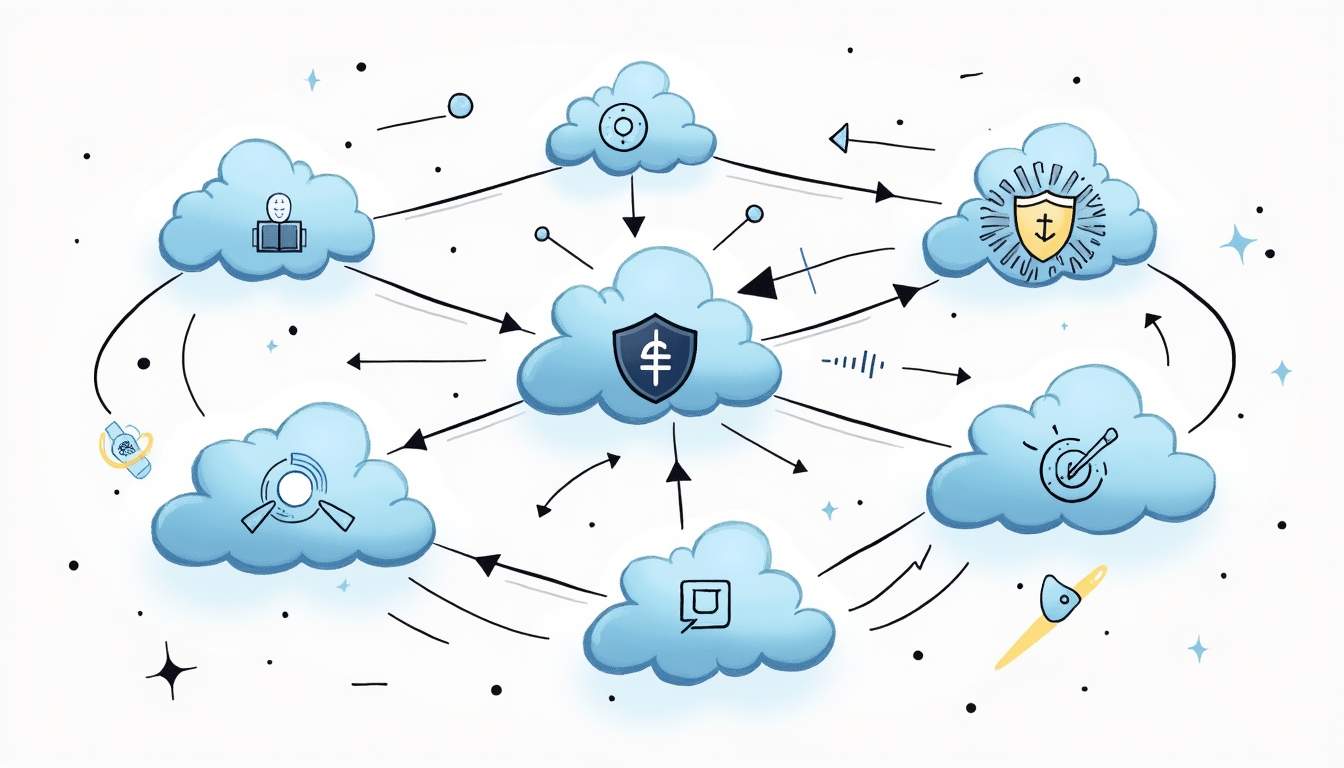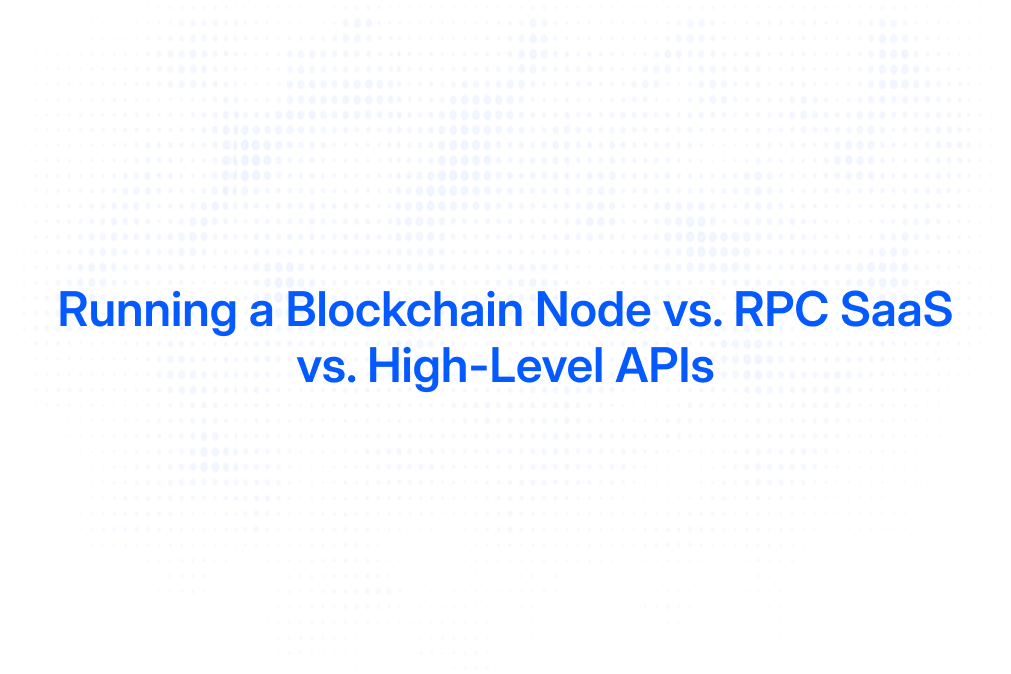The Future of Blockchain APIs: Multi-Cloud and Beyond
As blockchain technology continues to evolve, so too does the infrastructure that supports it. One of the most critical components for decentralized applications (dApps) and Web3 services is the blockchain API, particularly Remote Procedure Call (RPC) endpoints that connect applications to blockchain networks. The future of blockchain APIs is being shaped by innovations such as multi-cloud deployments, multi-provider RPC routing, and advanced auto-routing techniques. These developments promise to enhance reliability, reduce latency, optimize costs, and ultimately empower developers to build more scalable and resilient blockchain applications.
Understanding the Current Landscape of Blockchain APIs
Blockchain APIs serve as the gateway for dApps to interact with blockchain networks. These APIs typically rely on RPC providers to relay requests such as querying blockchain data or submitting transactions. Traditionally, many projects have depended on single RPC providers, but this approach introduces significant risks and limitations.
Single-provider dependence can lead to outages, increased latency, and higher costs. For example, an RPC outage can halt transaction processing or cause delays in data retrieval, directly impacting user experience and application reliability. The hidden risk of relying on a single RPC provider is a critical pain point that has driven the industry toward more robust solutions. As the demand for decentralized applications continues to surge, the need for reliable and efficient API solutions has never been more pressing, prompting developers to explore innovative alternatives that enhance performance and security.
The Rise of RPC Auto-Routing and Multi-Provider Strategies
RPC auto-routing is an emerging technique that intelligently directs API calls across multiple RPC providers. By leveraging multiple providers, applications can achieve redundancy, load balancing, and failover capabilities. This approach minimizes downtime and ensures that if one provider experiences issues, others can seamlessly take over. Furthermore, this strategy not only enhances reliability but also empowers developers with greater flexibility in choosing providers that align with their specific needs, whether it be for speed, cost, or geographical proximity.
Multi-provider RPC routing is quickly becoming the future standard for Web3 infrastructure. It not only improves reliability but also optimizes latency by routing requests to the fastest or closest endpoint. Additionally, it enables cost optimization by distributing traffic according to pricing and performance metrics. As developers increasingly adopt this multi-faceted approach, they are also discovering the benefits of integrating advanced monitoring tools that provide real-time insights into API performance. These tools can help teams proactively address potential issues before they affect users, ensuring a smoother and more responsive experience for dApp users. The ongoing evolution of blockchain APIs reflects a broader trend toward decentralization and resilience, paving the way for a more robust and interconnected digital ecosystem.
Multi-Cloud Blockchain Infrastructure: A New Paradigm
One of the most transformative trends in blockchain API infrastructure is the adoption of multi-cloud strategies. Multi-cloud involves deploying blockchain API endpoints across multiple cloud service providers and geographic regions, enhancing resilience and performance.
What is Google MCP and Its Role in Blockchain?
Google’s Multi-Cloud Proxy (MCP) is a pivotal technology that facilitates multi-cloud RPC routing. MCP acts as an intelligent proxy layer that orchestrates API requests across different cloud environments, ensuring high availability and low latency. For blockchain applications, MCP integration means the ability to scale APIs efficiently while maintaining consistent performance.
By leveraging MCP, developers can avoid vendor lock-in and mitigate risks associated with cloud-specific outages. This flexibility is essential for mission-critical blockchain services that demand uninterrupted connectivity and rapid response times.
Benefits of Multi-Cloud RPC Routing
Multi-cloud RPC routing offers several key advantages:
- Improved Reliability: Distributing API calls across multiple cloud providers reduces the risk of single points of failure.
- Latency Reduction: Routing requests to geographically closer or less congested regions decreases response times.
- Cost Efficiency: Dynamic routing allows traffic to be sent to the most cost-effective provider at any given time.
- Scalability: Multi-cloud setups can handle surges in API calls without compromising performance.
These benefits are particularly important as blockchain applications scale to millions of API calls daily, requiring sophisticated infrastructure to maintain seamless user experiences.
Addressing Key Challenges: Downtime, Cost, and Scalability
Despite the promise of blockchain APIs, developers face persistent challenges related to downtime, cost, and scalability. Understanding how multi-cloud and multi-provider solutions address these issues is crucial for building future-proof applications.
Reducing RPC Downtime with Auto-Routing
RPC downtime can be costly, causing transaction failures, data inconsistencies, and user dissatisfaction. Auto-routing technology mitigates these risks by automatically switching traffic away from failing endpoints to healthy ones. This failover mechanism ensures continuous service availability without manual intervention.
Moreover, load balancing across multiple RPC providers prevents any single endpoint from becoming a bottleneck, further enhancing uptime and responsiveness.
Optimizing Costs Through Intelligent Routing
Blockchain API calls can become expensive, especially at scale. Multi-provider routing enables applications to optimize costs by dynamically selecting the cheapest or most efficient RPC provider based on real-time pricing and performance data. This approach has been shown to reduce RPC costs by up to 40%, a significant saving for startups and enterprises alike.
Cost optimization is not just about savings; it also allows projects to allocate resources more effectively, investing in features and user experience rather than infrastructure overhead.
Scaling to Millions of API Calls
As blockchain adoption grows, applications must handle increasing volumes of API requests. Multi-cloud and multi-provider architectures provide the scalability needed to manage this growth. By distributing load and leveraging cloud elasticity, these systems can scale horizontally without degradation in service quality.
API orchestration tools integrated with multi-cloud proxies further streamline scaling by coordinating complex workflows and aggregating data from multiple sources efficiently.
Looking Ahead: The Future of Blockchain Infrastructure
The evolution from single-provider RPC endpoints to multi-cloud, multi-provider auto-routing represents a significant leap forward for blockchain infrastructure. This shift not only addresses current pain points but also lays the groundwork for more advanced capabilities.
From RPC to MCP: The Next Frontier
While RPC remains the backbone of blockchain APIs, the integration of Multi-Cloud Proxy technologies signals a new era. MCP enables more sophisticated API orchestration, enhanced security, and seamless integration across diverse cloud environments.
Future developments may include AI-driven routing algorithms that predict and preemptively adjust traffic patterns, further reducing latency and improving fault tolerance.
Why Multi-Provider Solutions Will Dominate
Multi-provider RPC routers outperform single providers by offering superior reliability, flexibility, and cost-effectiveness. As the Web3 ecosystem matures, reliance on a single RPC provider will become increasingly untenable due to risks of outages and vendor lock-in.
Developers and organizations that embrace multi-cloud and multi-provider strategies will be better positioned to deliver high-quality, resilient blockchain applications that meet the demands of a growing user base.
Conclusion
The future of blockchain APIs lies in embracing multi-cloud infrastructure and multi-provider RPC routing. These innovations address critical challenges around downtime, latency, cost, and scalability, empowering developers to build more reliable and efficient Web3 applications.
Google’s Multi-Cloud Proxy and advanced auto-routing techniques exemplify the direction of blockchain infrastructure—towards a distributed, resilient, and cost-optimized ecosystem. As the industry continues to evolve, adopting these technologies will be essential for anyone looking to stay ahead in the rapidly expanding world of decentralized applications.
As you look to the future of blockchain APIs and seek to leverage multi-cloud infrastructure and multi-provider RPC routing for your projects, consider Uniblock as your go-to solution. Our Web3 infrastructure orchestration platform is designed to streamline your development process, offering a single API endpoint that intelligently auto-routes traffic to ensure maximum uptime, minimal latency, and cost savings. Join the ranks of over 2,000 developers across more than 100 chains who trust Uniblock to eliminate vendor lock-in and scale their applications with ease. Start building with Uniblock today and experience the benefits of a simplified, robust decentralized infrastructure.
.svg)


.png)



